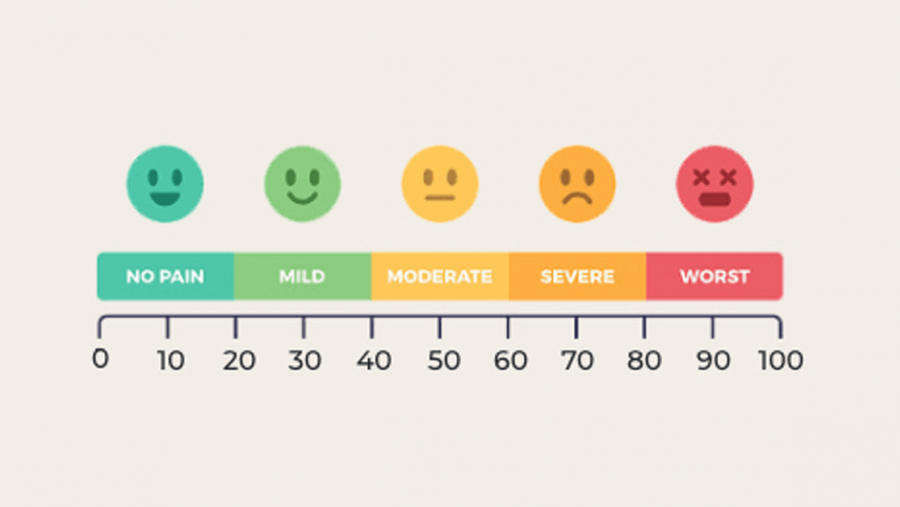Discovery and Validation of Biomarkers, Endpoints, and Signatures for Pain Conditions
Overview
The Research Need
Only a small fraction of new pain medications advance from safety testing in humans to approval by the U.S. Food and Drug Administration. One reason is because the research community lacks specific, measurable characteristics, or biomarker signatures, to assess pain objectively in individual patients.
About the Program
The program funds research to identify specific, reproducible characteristics of pain conditions (biomarker signatures) that reflect indicators of a normal or abnormal process, a condition or a disease, or a treatment response. These characteristics can be used to define pain levels objectively as well as to predict the development of chronic pain from injury or various diseases.
Careful selection of research participants for pain clinical studies based on these specific, measurable characteristics (called signatures or phenotypes) can improve the success of clinical trials by reducing variation among participants as well as developing a more precise set of targets. A program goal is to develop new, individualized therapies based on specific pain-related characteristics and predictive models. Novel treatments can then be tested through program-funded prospective clinical studies or through the Early Phase Pain Investigation Clinical Network (EPPIC-Net).
Because many individuals have more than one type of pain, the research leverages existing clinical studies to follow subsets of participants with two or more chronic overlapping pain conditions and determine relevant features that can serve as markers for development, progression, and treatment response to these conditions. The program also funds exploratory research, including with nonpharmacological treatments for muscles and associated soft tissues (such as fascia, a highly understudied tissue type in many painful conditions).
Open Funding Opportunities
There are no Open Funding Opportunities at this time.
Upcoming Events
- November 1, 2023 - NINDS Division of Translational Research HEAL Biomarker Webinar
Past Events
- September 1, 2022 - Technical Assistance Webinar
- March 28, 2022 - Technical Assistance Webinar
Research Examples
Research examples supported by this program include:
- Identifying biomarker signatures to predict which patients will develop persistent headaches after a concussion or nerve pain after a spinal cord injury
- Using brain signals as signatures to predict pain severity and duration
- Developing biomarker signatures to diagnose eye pain
- Developing patient immune biomarker signatures for sickle cell disease-related pain
- Identifying biomarker signatures in both adolescents and adults, to diagnose and monitor treatments for musculoskeletal pain
- Discovering a novel human biomarker signature for prevention and treatment of post-operative pain
- Manipulating myofascial tissues to test biomarker responses and potential predictive properties
- Identifying pain biomarkers or biosignatures that predict and/or monitor response to pain therapeutics
- Identifying and refining patient characteristics relevant to chronic overlapping pain conditions
- Developing and validating real-world remote data from wearable devices to monitor pain experience and progression, treatment response, and quality of life
- Beth Israel Deaconess Medical Center – Massachusetts
- Cleveland Clinic Lerner College of Medicine, Case Western Reserve University – Ohio
- George Mason University – Virginia
- Johns Hopkins University – Maryland
- Mayo Clinic Arizona – Arizona
- Mayo Clinic Rochester – Minnesota
- Medical College of Wisconsin – Wisconsin
- Stanford University – California
- Tufts Medical Center – Massachusetts
- University of Maryland, Baltimore – Maryland
- University of Pittsburgh – Pennsylvania
- University of Texas Health Science Center at Houston – Texas
- Washington University – Missouri
Participating NIH Institutes, Centers, and Offices
- Eunice Kennedy Shriver National Institute of Child Health and Human Development (NICHD)
- National Cancer Institute (NCI)
- National Center for Complementary and Integrative Health (NCCIH)
- National Eye Institute (NEI)
- National Institute of Allergy and Infectious Diseases (NIAID)
- National Institute of Arthritis and Musculoskeletal and Skin Diseases (NIAMS)
- National Institute of Dental and Craniofacial Research (NIDCR)
- National Institute of Diabetes and Digestive and Kidney Diseases (NIDDK)
- National Institute of Neurological Disorders and Stroke (NINDS)
- National Institute of Nursing Research (NINR)
- National Institute on Aging (NIA)
- National Institute on Alcohol Abuse and Alcoholism (NIAAA)
- National Institute on Drug Abuse (NIDA)
Contact
Ram Arudchandran, Ph.D.
NINDS
Resources
- BEST Resource: Harmonizing Biomarker Terminology
- Biomarker Qualification: Evidentiary Framework: Guidance for Industry and U.S. Food and Drug Administration (FDA) Staff
- NIH HEAL Initiative Pain Biomarker Workshop, Nov 14-15, 2018, videocast
View Other Research Programs in This Focus Area
- Back Pain Consortium Research Program (BACPAC)
- Early Phase Pain Investigation Clinical Network (EPPIC Net)
- Integrated Approach to Pain and Opioid Use in Hemodialysis Patients (HOPE)
- Reducing Opioid-Related Harms to Treat Chronic Pain (IMPOWR and MIRHIQL)
- Pain Management Effectiveness Research Network (ERN)
- PRagmatic and Implementation Studies for the Management of Pain to Reduce Opioid Prescribing (PRISM)
- Prevention and Management of Chronic Pain in Rural Populations
 U.S. Department of Health & Human Services
U.S. Department of Health & Human Services




